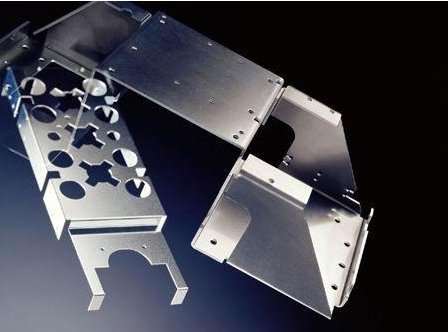The Impact and Opportunities of Smart Manufacturing in Sheet Metal Fabrication+ View more
The Impact and Opportunities of Smart Manufacturing in Sheet Metal Fabrication
+ View more
Date:2023-12-28 11:00
Introduction
Smart manufacturing, driven by technological advancements like the Internet of Things (IoT), artificial intelligence (AI), and data analytics, is transforming industries worldwide. The sheet metal fabrication sector is no exception. In this article, we will explore the impact of smart manufacturing on the sheet metal fabrication industry and the opportunities it presents for businesses. By harnessing the potential of smart manufacturing, companies can optimize production processes, improve efficiency, and stay competitive in today's rapidly evolving market.

- IoT-enabled Equipment Monitoring and Predictive Maintenance
The integration of IoT devices and sensors in sheet metal fabrication equipment enables real-time monitoring of machine performance and health. Critical parameters such as temperature, vibration, and power consumption can be continuously measured and analyzed. This data allows for early detection of anomalies and potential equipment failures, facilitating timely maintenance and reducing unplanned downtime. By implementing predictive maintenance strategies, manufacturers can optimize productivity, ensure equipment reliability, and minimize costly repairs.
- AI-driven Quality Control and Inspection
Artificial intelligence has revolutionized quality control and inspection processes in the sheet metal fabrication industry. AI algorithms can analyze vast amounts of data gathered from sensors and cameras to detect defects, measure dimensions, and identify deviations from design specifications. This allows for real-time quality assurance and immediate corrective actions. AI-powered visual inspection systems enhance accuracy, increase throughput, and reduce human error, leading to improved product quality and customer satisfaction.
- Data Analytics for Process Optimization
The implementation of data analytics in smart manufacturing enables comprehensive analysis of production data, generating valuable insights for process optimization. By analyzing historical data, manufacturers can identify patterns, correlations, and inefficiencies in their operations. These insights help streamline workflows, optimize material usage, and reduce waste. Data analytics also enable real-time decision-making, empowering manufacturers with actionable information to improve productivity, meet delivery schedules, and drive continuous improvement.
- Collaborative Robotics for Enhanced Efficiency
Collaborative robots, or cobots, are playing a crucial role in smart manufacturing for sheet metal fabrication. These robots work alongside human operators, automating repetitive, physically demanding tasks while ensuring safety. Cobots can assist with material handling, part assembly, and even complex tasks like welding. By automating these processes, manufacturers can increase production speed, reduce errors, and free up human workers to focus on more skilled tasks that require creativity and problem-solving.
- Supply Chain Integration and Digitalization
Smart manufacturing facilitates seamless integration of the supply chain through digitalization. Manufacturers can leverage advanced software systems to connect with suppliers, customers, and other stakeholders in real time. This enables efficient inventory management, just-in-time manufacturing, and rapid response to changing market demands. Digitalization also enhances communication, collaboration, and transparency across the supply chain, driving efficiency and improving overall operational performance.
Conclusion
Smart manufacturing is transforming the sheet metal fabrication industry, offering numerous opportunities for companies willing to embrace innovation. Through IoT-enabled equipment monitoring, AI-driven quality control, data analytics for process optimization, collaborative robotics, and supply chain integration, manufacturers can unlock significant advantages. By adopting smart manufacturing practices, businesses can achieve higher productivity, improved product quality, reduced costs, and enhanced customer satisfaction. To stay competitive in the evolving landscape, sheet metal fabrication companies must seize the opportunities presented by smart manufacturing and leverage technology to their advantage.
Share to:
Recommend wonderful blog posts

